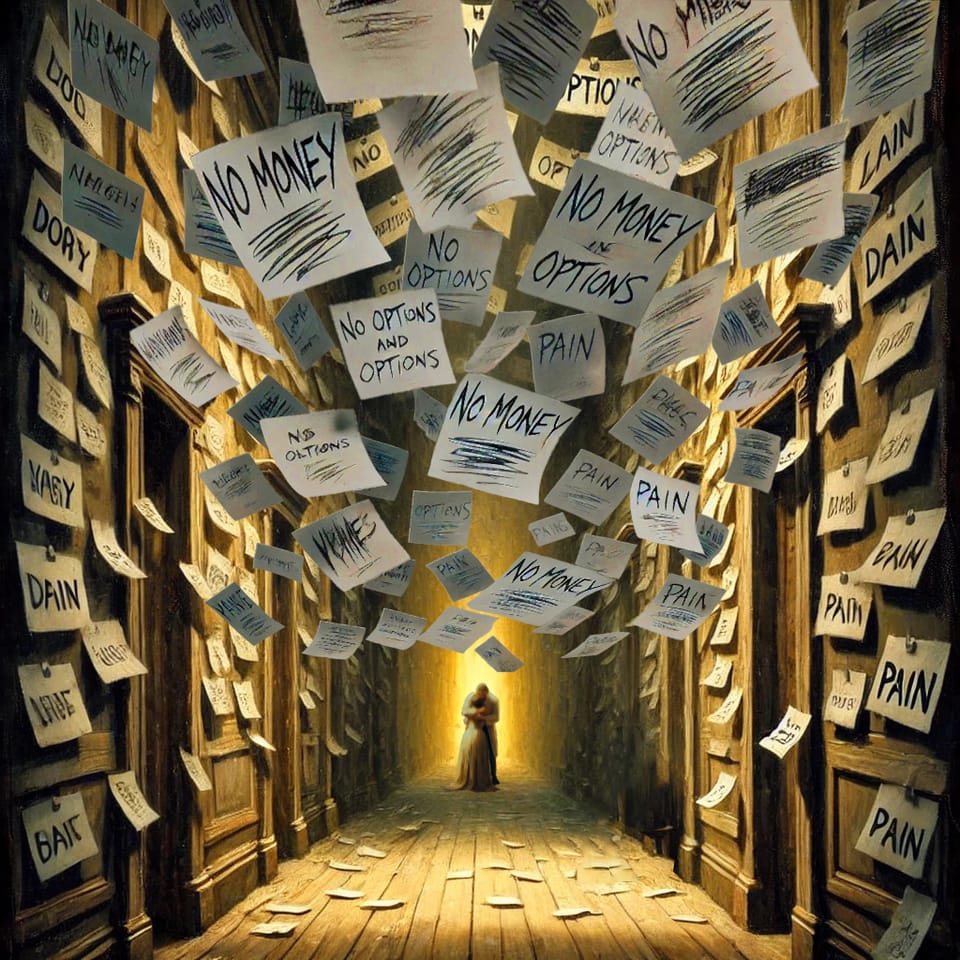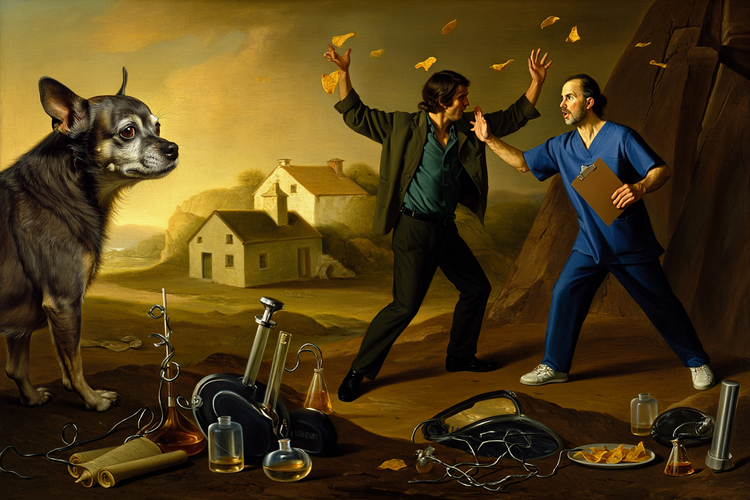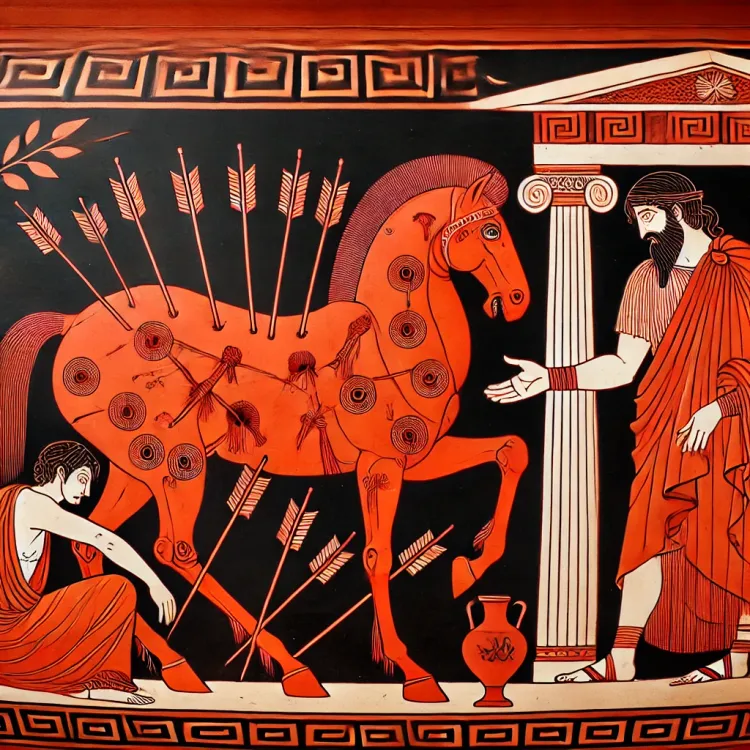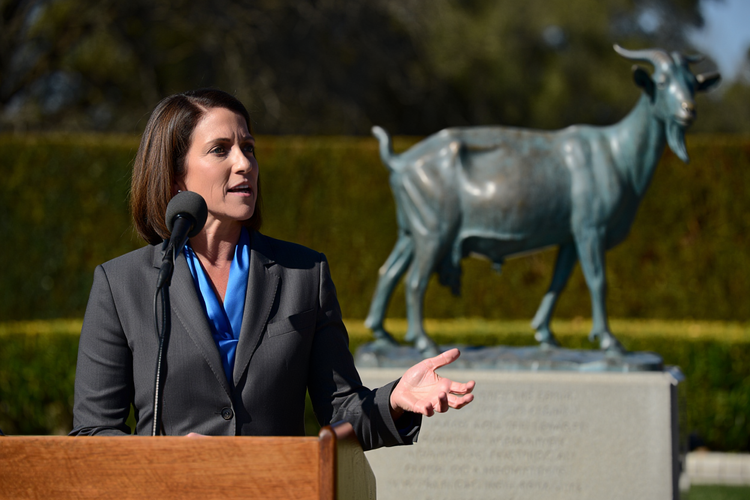No Other Choice

I did something I almost never do.
She was crying the entire appointment. That didn't phase me, because I knew she would be. In fact, before I even walked into the exam room, I knew exactly where all of this was heading
Three pieces of information gave me this cold reassurance. First, my patient was a 12-year-old large breed dog. It could have presented for sneezing once last Tuesday, and I wouldn't have dismissed out of hand an end of life discussion. Old animals are always suffering to some degree, and modern medicine can't eliminate all discomfort. I'm not saying we should euthanize every old pet, just that we should be acutely aware of the pain we ask them to endure.
Second, the dog's chart had a Post-It note with the words "$ concerns" scribbled on it. So any test or treatment I asked this client do had to be enormously valuable for it's cost. I might only get to choose one diagnostics, or more likely just use best-guess medicine: stabs-in-the-dark steroids or ah-what-the-hell-antibiotics (or both, if finances allowed, which they often don't). Options were limited.
Lastly, and this is where that imaginary hallway of open doors I always picture in these situations narrowed to just one, I saw the dog's clinical signs. The combination of incessant salivation and phantom chewing, anorexia, vomiting, diarrhea, weight loss, excessive thirst and urination, slammed shut all the remaining options. Not to mention he couldn't stand up on his own. There was only a single opportunity to help this poor creature.
We're taught in school not to get tunnel vision–meaning don't jump to conclusions about how a certain case will turn out. Largely, I agree with this sentiment, but I will say that trusting the gut is sometimes necessary in medicine. If for nothing else than to sound convincing as you stare into someone's eyes while carving up their soul.
I expected the tears. I expected the sob story, which was in this case truly horrendous: emotional dependency on a dying animal, homelessness, personal strife that included family deaths (a parent, and agonizingly, a granddaughter). Sometimes we use skepticism of these stories as a way to distance ourselves from the contagiousness of people's pain, but I saw no reason to doubt any of it.
I even suspected, and she stated it explicitly, that this animal on the ground in front of us–unable to stand and soiling himself involuntarily–was the only emotionally positive connection she had left on Earth.
I've heard all this before. None of it changes my cold, clinical calculus. There is only solution to this problem, and it's a beautiful and elegant gift to bestow on a living organism caught in the throes of unbearable pain.
But something felt off.
After I laid out the situation as clearly and unambiguously as I could, I was bothered by the thought of her facial expression. There was a hint of panic, desperation even. I hadn't actually given her all the things I'm supposed to: a clear diagnosis, prognosis, and treatment options. These are sanctimonious rules that I've staked my professional reputation on not breaking. And I left her alone in the room with her dog after telling her she had to do the one thing she was terrified of.
When I had given her a few minutes to think things over, she tried to force her dog's mouth open, hoping to confirm the presence of a malignant and inoperable tumor as a justifiable reason for euthanasia. I hadn't done that, judging the dog's incessant chewing and putrid breath probable cause to not add even a moment's more pain to its life. What did it matter with everything else added up? I came back in the room, hoping that she had found clarity, but instead found her mumbling in despair and bleeding from her hand. Drops of blood dotted the exam room floor, along with the products of her dog's failing bowels.
I've spent a lot of time recently thinking about how to approach communication, how to think about the rising challenge of helping clients understand their animals' experiences and bringing their goals into alignment with the realities of veterinary medicine. I've argued that collaboration and equal partnership is a necessity. That teamwork means relinquishing some control, because modern clients need empowerment to feel trust in their healthcare providers.
That medical paternalism is dead.
But when I came back in the room and saw this woman, old enough to have lived through the tragedy of a dead grandchild and now sleeping in her car awash in the filth of a dying animal, desperate to force open any alternative to the inevitable outcome we're all destined for, I did not see someone looking for partnership. I saw an innocent child. In agony. My heart broke and my mind raged against the incomprehensible suffering of her life. None of which I could let her see, lest it break our commitment to doing what needed to be done.
I did what I almost never do, and asked her if she needed a hug.
Now–I'm not really a hugger. I'll happily scritch the head of almost any animal you put in front of me, but I don't particularly enjoy being wrapped up in the arms of large primates.
But this person, this human, my "conspecific" (to use a pretentious but perfectly accurate term) needed a fucking hug. There was no alternative strategy. Without it, she couldn't have faced the horrors of going back to her car alone. She would've buckled, and decided not to euthanize her dog, and taken him out into the cold for another few days (or few hours) of withering life. I don't suspect this to be the case, I know it with certainty.
Screw the reek of cigarettes. Screw the blood on her arms and hands. Screw the mocking tone of the staff, degrading this woman's bruised and battered dignity. I lost nothing and gave her the most goddamn heartfelt hug I was capable of. I picked her emotions up and put them on my shoulders and hiked them out of the valley of despair, because that's my fucking job and we had to stop the immense suffering of a dying animal who could never ask for something like that.
Hell yeah, I hugged this lady!





Comments ()